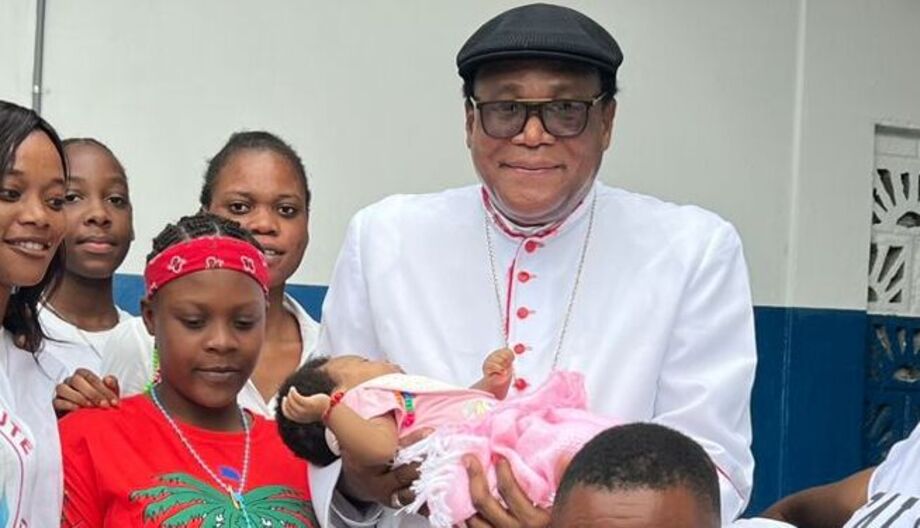Christmas is still expected in Haiti; despite the constant violence of armed gangs, despite extreme poverty, despite the changes in the terrain due to climate change that has caused earthquakes, landslides and floods. In this Caribbean country of more than 11 million inhabitants, half of whom are chronically malnourished, hope does not seem to have been completely erased.
About sixty kilometers from the capital, Port-au-Prince, is the diocese of Anse-à-Veau-Miragoâne. Here, as in any other Christian-majority area of the country, the population is living a more complicated situation every day. Bishop Pierre-André Dumas explains to Omnes that "it is not only the violence of the warring armed groups that is frightening, but also the political and economic crisis that is developing amidst the indifference of politicians and institutions".
Signs of hope in despair
And if even the spirit of Christmas seems somewhat tarnished by pain and, in many cases, despair, Monsignor Dumas affirms that "the Church is doing everything possible to revitalize this spirit, preparing Christmas celebrations especially with the poorest, with the forgotten, with those who live in the narrowest and most dangerous suburbs". After all, he adds, "the Child Jesus was not born in a big city". And if it is true that this Christmas is difficult for us, it is also true that it is "a Christmas in which we must find the signs of hope that God places in history, also in our history".
Rediscovering fraternity
Next year Haiti will celebrate the 220th anniversary of its independence and the Catholic bishops of the country wish that this Christmas the people and the governed be taught the spirit of fraternity. The bishop of the diocese of Anse-à-Veau-Miragoâne, in explaining this passage also included in a letter of the Haitian Episcopal Conference addressed to all the Catholic faithful, refers precisely to the acceptance "of Christ as the firstborn of a multitude of brothers. A model that should inspire us to adopt an attitude of fraternity that is also the foundation of our nation". It is also an attempt to try to reconcile this divided and bloodied country.
Clashes increase
Armed clashes provoked by rival gangs have increased in recent times and are concentrated mainly in the shantytowns, which have become battlefields. "Fortunately," says Monsignor Dumas, "in my diocese, the rival groups have reached an agreement to live in peace and unity: in this way, the people here are calmer." Thus, during the Christmas period, the bishop will be able to visit prisoners, meet with abandoned children for a festive moment and have lunch with the most vulnerable. However, the situation is different in Port-au-Prince and other cities in the south of the country, where people live in fear: "They are helpless," says the bishop, "and they cannot escape. They will live a Christmas in the dark, but I am sure that the Church will help them all to rediscover the joy of the coming of the Lord, in spite of everything".









